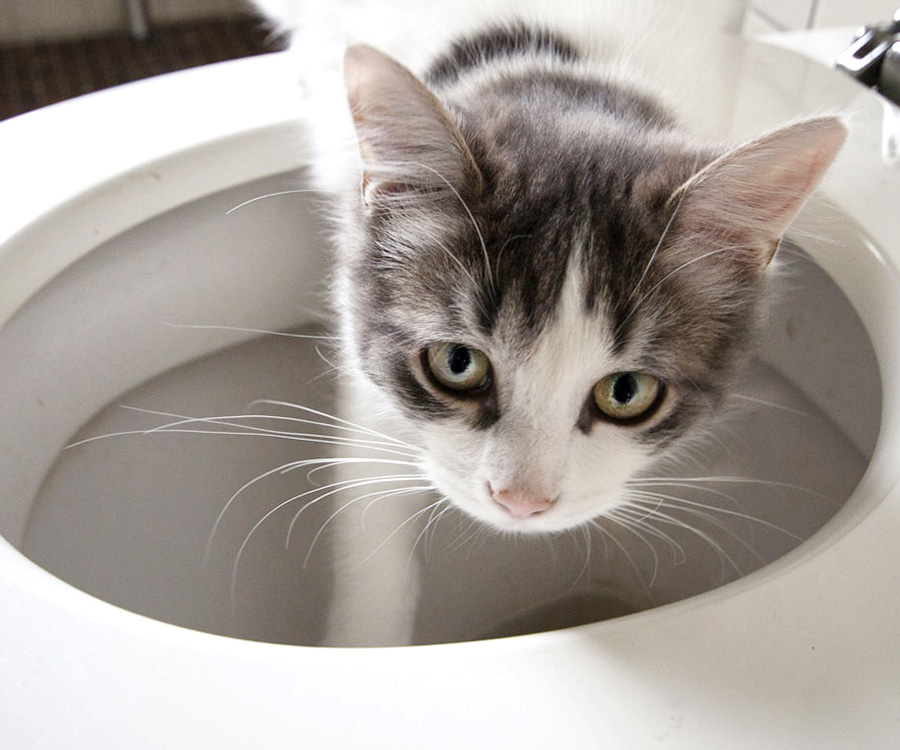Prevent Bathroom Disasters: Don't Flush Cat Poop Down Your Toilet - Expert Guidance
Prevent Bathroom Disasters: Don't Flush Cat Poop Down Your Toilet - Expert Guidance
Blog Article
This post below in relation to How to Dispose of Cat Poop and Litter Without Plastic Bags is amazingly entertaining. Give it a try and make your own personal results.

Intro
As feline owners, it's essential to bear in mind exactly how we deal with our feline friends' waste. While it might seem convenient to purge cat poop down the bathroom, this practice can have destructive repercussions for both the setting and human health.
Ecological Impact
Flushing feline poop presents damaging virus and parasites into the water, posing a considerable threat to marine communities. These pollutants can adversely influence aquatic life and concession water quality.
Health Risks
In addition to environmental issues, flushing cat waste can also position health and wellness risks to humans. Pet cat feces might include Toxoplasma gondii, a bloodsucker that can cause toxoplasmosis-- a possibly severe health problem, particularly for expecting women and individuals with damaged immune systems.
Alternatives to Flushing
Luckily, there are more secure and much more accountable means to deal with feline poop. Take into consideration the following alternatives:
1. Scoop and Dispose in Trash
The most typical approach of disposing of pet cat poop is to scoop it into an eco-friendly bag and toss it in the garbage. Make certain to use a specialized litter inside story and throw away the waste promptly.
2. Use Biodegradable Litter
Choose biodegradable cat litter made from materials such as corn or wheat. These litters are environmentally friendly and can be safely thrown away in the garbage.
3. Bury in the Yard
If you have a lawn, think about burying pet cat waste in a designated area far from veggie gardens and water sources. Make certain to dig deep sufficient to prevent contamination of groundwater.
4. Install a Pet Waste Disposal System
Purchase a family pet waste disposal system specifically made for feline waste. These systems use enzymes to break down the waste, reducing smell and environmental influence.
Final thought
Responsible family pet ownership prolongs beyond supplying food and shelter-- it likewise involves appropriate waste monitoring. By refraining from purging cat poop down the bathroom and going with alternate disposal techniques, we can decrease our ecological impact and protect human health.
Why You Should Never Flush Cat Poop Down the Toilet
A rose by any other name might smell as sweet, but not all poop is created equal. Toilets, and our sewage systems, are designed for human excrement, not animal waste. It might seem like it couldn’t hurt to toss cat feces into the loo, but it’s not a good idea to flush cat poop in the toilet.
First and foremost, assuming your cat uses a litter box, any waste is going to have litter on it. And even the smallest amount of litter can wreak havoc on plumbing.
Over time, small amounts build up, filling up your septic system. Most litter sold today is clumping; it is made from a type of clay that hardens when it gets wet. Ever tried to scrape old clumps from the bottom of a litter box? You know just how cement-hard it can get!
Now imagine just a small clump of that stuck in your pipes. A simple de-clogger like Drano isn’t going to cut it. And that means it’s going to cost you big time to fix it.
Parasitic Contamination
Believe it or not, your healthy kitty may be harboring a nasty parasite. Only cats excrete Toxoplasma in their feces. Yet it rarely causes serious health issues in the cats that are infected. Most people will be fine too if infected. Only pregnant women and people with compromised immune systems are at risk. (If you’ve ever heard how women who are expecting are excused from litter cleaning duty, Toxoplasma is why.)
But other animals may have a problem if infected with the parasite. And human water treatment systems aren’t designed to handle it. As a result, the systems don’t remove the parasite before discharging wastewater into local waterways. Fish, shellfish, and other marine life — otters in particular — are susceptible to toxoplasma. If exposed, most will end up with brain damage and many will die.
Depending on the species of fish, they may end up on someone’s fish hook and, ultimately on someone’s dinner plate. If that someone has a chronic illness, they’re at risk.
Skip the Toilet Training
We know there are folks out there who like to toilet train their cats. And we give them props, it takes a lot of work. But thanks to the toxoplasma, it’s not a good idea.

We hope you enjoyed reading our post about Can You Flush Cat Poo or Litter Down the Toilet?. Thank you so much for taking a few minutes to read our piece. Enjoyed reading our post? Please share it. Let someone else discover it. Thank-you for taking the time to read it.
Phone Report this page